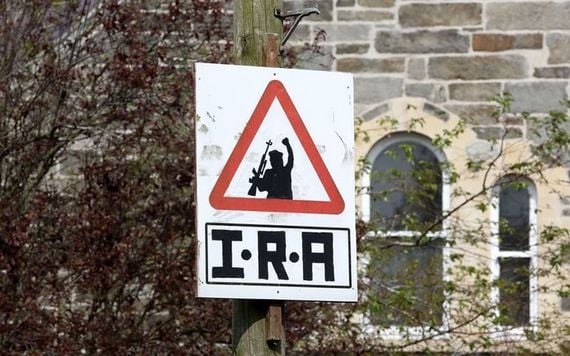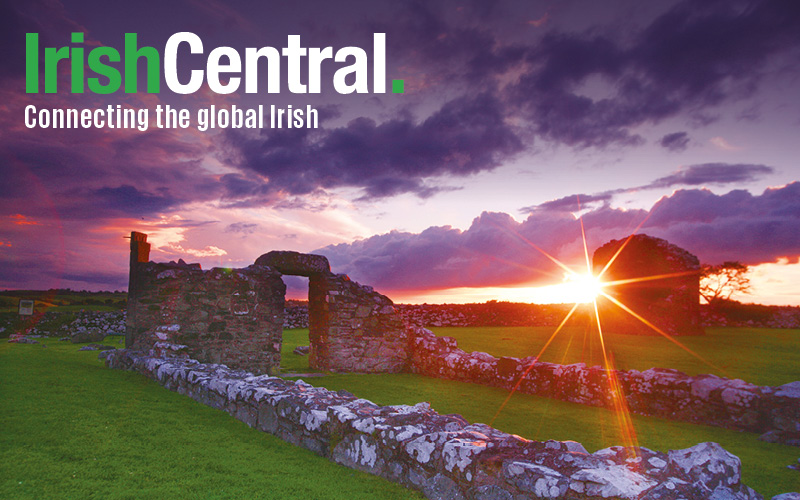"A Broad Church: The Provisional IRA In The Republic Of Ireland 1969-1980" by Gearóid Ó Faoleán
For those of us who lived through – and were marked by - the Troubles, Brexit is a flashing red light that spells danger ahead. We know what's likely coming because we've read the books and we've lived it.
But to the current crop of deluded Tory political leaders and the DUP, Brexit seems to spell a restoration of their status and a return to some form of dynamic empire.
It would be funny if it wasn't so sad.
Read more: MI5 plot to "shoot up" a Catholic grade school during The Troubles revealed

History lessons never seem to interest the majority of English political leaders with the power to make far-reaching decisions about the North. You only need to take a look at the last three Secretaries of State for Northern Ireland to know that none of them cracked open a book on the hard lessons that their own ancestors learned about that other unfathomable island.
That's a profound shame because their ignorance always makes us vulnerable.
We know all about ignorant leaders here in the USA, of course. After all we now have a president who treats the Justice Department as if it was his own private law firm, who greets leaders of the world's cruelest and most murderous regimes as though they were his close personal friends, and who publicly asked the nations most dangerous political foe to attack our own American leaders and hack their email servers to affect the national election.
When you hear and see careless words and deed like these you know a new level of ignorance is in charge that may get us all killed.
Read more: Northern Ireland’s Troubles haven’t gone away

Brighter leaders take the time to learn where Trump style hubris has led us in the past. Here's the Cliff Notes version: nowhere good.
If you cannot bear to learn the lessons of history then you are doomed to live in an endless action replay of every bad direction we have previously taken. That's where we are now.
Ireland is not where we are. Ireland has been doing very well in so many ways lately. From progressive social changes to the rise of its women writers and its determination not to fall prey to the kind of hateful populist politics that have ripped the UK and the USA apart, they are succeeding on the world's stage because they are doing the thing that mature democracies since the Greeks do: learn from history.
Depending on who you ask these days, you will get remarkably qualified answers concerning the Republic's attitudes to armed conflict during the first decade of the Troubles. Some, repulsed by the mounting slaughter on both sides, later disavowed their original support when the conflict began to spiral.

But others maintained consistent support throughout the entire conflict and its aftermath, never wavering from their belief that the principles that led to it were just and have remained so.
In Gearóid Ó Faoleán's new book, he explores a subject sure to discomfit many: just how integral the Republic of Ireland was to the effectiveness of the IRA's long campaign at every level.
Throughout the three decades of its long campaign against British rule, the IRA used the Republic as a training ground, it was central to its supply chain, its financing and support at every level.
It's not controversial to say all that yet this is the first real study of its kind to have been printed on the subject.

A Broad Church: The Provisional IRA In The Republic Of Ireland 1969-1980
If there had been no support, if there had been no sympathy with its aims if not its methods, then the length of the Troubles would not have run on for decades.
Ó Faoleán outlines the various ideologies that came out in support of the IRA's campaign, privately and publicly, and he reminds us how the conflict had a way of implicating everyone who had a view on the North.
In the early years of the IRA's campaign support came from across the entire Irish political spectrum Ó Faloeán writes, from men and women outraged by the blatant sectarianism of the unionist dominated six counties, from juries of the Irish public, who sometimes even congratulated the defendants, and even occasionally from the judges themselves.
So Ó Faoleán's book reminds us how intimate, implicating and deadly the war in the North really was.
And it should serve as a timely warning to those who are carelessly and thoughtlessly trying to drag us back.
Merrion Press, $29.99.
Looking for Irish book recommendations or to meet with others who share your love for Irish literature and writers? Be sure to join the IrishCentral Book Club here and enjoy our book-loving community.




Comments